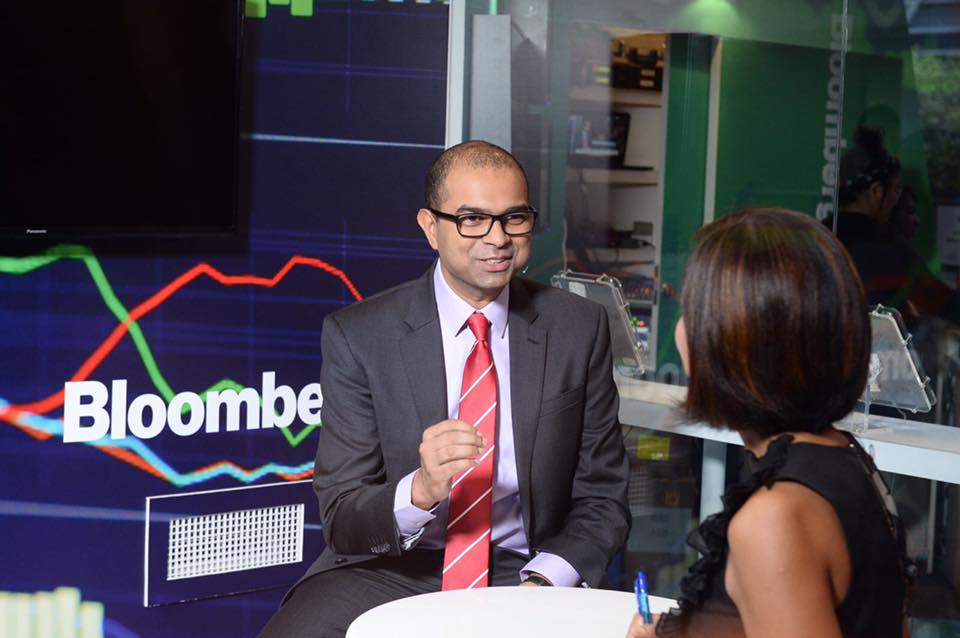The Digital Revolution is kind of like the end-of-year exams. It's inevitable, you only have a vague idea of what it involves, and it could change your life forever.
Don't worry, said Senior Minister of State for Communications and Information Janil Puthucheary. We've been here before.
 Gif from Amy's gifs
Gif from Amy's gifs
Speaking in Parliament on Sept. 11, Janil drew a comparison between the Digital Revolution taking place today and the Computer Revolution that took place in the 1980s. Our parents also had to grapple with the effects of new tech that everyone was supposed to master. Fortunately, the government had a plan back then.
"In the 1980s, when we saw a wave of computerisation across offices in Singapore, moving from typewriters to word processing, the public service took the lead through the National Computerisation Plan to implement widespread training of basic computer skills. We are now facing another major need for such a movement, and we will have to ensure everyone is equipped with a set of basic digital skills, be it for work or in our daily lives. This applies to all Singaporeans."
Janil was responding to a bunch of similar questions from a group of Members of Parliament (MP), including Tin Pei Ling and Low Thia Khiang, on how the government is preparing the people for the impact of these new developments. They know that our society is supposed to be one of the most tech-savvy in Asia, but sometimes still can be blur like sotong.
Tin Pei Ling (Macpherson SMC), Tan Wu Meng (Jurong GRC), Cheng Li Hui (Tampines GRC) and Liang Eng Hwa (Holland-Bukit Timah GRC) asked how the government would better manage this transition, especially for the older folks.
[related_story]
In his reply, Janil said:
"We must enable digital access and also facilitate digital readiness – help everyone have the skills and literacy to use digital technology in a safe, responsible and confident way, and give everyone the ability and opportunity to participate meaningfully in the digital society."
He referenced the five Strategic National Projects that aimed to make people's lives more convenient, boost business efficiency, and create new opportunities for the private sector, particularly for the elderly.
"The Ministry of Communications and Information has set up a Digital Readiness Workgroup with representatives from the public and private sectors who have expertise and experience in applying technology to make lives better. The Workgroup, in its recommendations, will propose strategies to improve digital readiness in Singaporeans, by early next year. These will reinforce existing initiatives such as the Silver Infocomm Initiative (SII) by IMDA which has reached out to more than 130,000 seniors to promote IT awareness and literacy."
Low Thia Khiang took a slightly different tack, asking about initiatives to mitigate the increasing risk from scams, loan sharks and other crimes involving e-payments. Janil addressed this too:
"An important part of being digitally ready is to understand the risks involved and to be proactive in risk mitigation. Financial institutions in Singapore have been taking measures to detect and deter cyber threats and strengthen the security of their digital platforms. MAS has set standards and expectations for financial institutions on the management of technology risks.
But, as with other forms of payment such as cash or cheque, the individual also has to exercise the responsibility to protect himself. In e-payments, there are simple steps that each of us can take to protect against fraudulent transactions or identity theft. MAS has been working closely with the banking industry and law enforcement agencies to raise consumer awareness of these measures. Singapore Police Force (SPF) and the National Crime Prevention Council (NCPC) have also conducted several anti-scam public education initiatives over the years as well, and launched the Anti-Scam Helpline in November 2016."
Ever since Prime Minister Lee Hsien Loong chose to make technological innovation and a vision of a cashless society an important part of his National Day Rally speech, naturally people started worrying about what this meant for them.
While the government is prepping lots of schemes to help citizens, no matter what age you are, the responsibility is still on you to figure out how you can make these developments make your life better.
Remember - the machines should work for you, not the other way round.
[caption id="" align="alignnone" width="498"] Gif from Tenor.[/caption]
Gif from Tenor.[/caption]
Related story:
Everything you need to know about the 2017 National Day Rally in 90 seconds
Here are some totally unrelated but equally interesting stories:
Good Samaritan taxi driver helps cyclist involved in hit-&-run at Yishun dam
Investigative video exposes hygiene problems in China’s 5-star hotels
Top image from Janil Puthucheary's Facebook page.
If you like what you read, follow us on Facebook, Instagram, Twitter and Telegram to get the latest updates.


